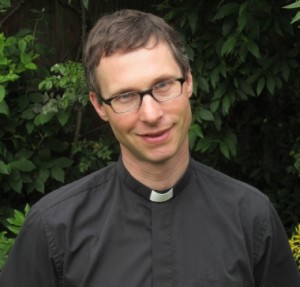I find this article deeply troubling. For reasons I genuinely cannot understand, the ordination of women remains a contentious issue for some Christian clergy. I can, however, understand each side’s insistence on defending their claims to orthodoxy, but the idea of refusing the laying on of hands by clergy who differ on the topic strikes me as profoundly theologically unhealthy.
How can the intentional unwillingness to receive the laying on of hands be anything other than a rejection of Christian unity? For a person of faith, the physical act of laying on hands is the act of trusting the Holy Spirit to create unity between the work that has gone before and the work that we hope to do. Rejecting it strikes me as a clear and arrogant assertion that the Holy Spirit who works through the flawed and sinful hands of one’s opponents is somehow not the same Spirit who works through the flawed and sinful hands of one’s allies. Doing so elevates theological disagreement from simply a matter of difference of perspective or interpretation to one of inferior or superior status as an instrument of God. Making that assertion is hubris.
We all have our bigotries, and many of us try to allow the collective wisdom of the Church, and the direct work of the Holy Spirit, to help pull us out from our provincialism, superstition, and bigotry. To reject the help of that Spirit if it comes through the hands of fellow Christians – regardless of their political or theological bent – is to reject the very thing that gives the Body of Christ its strength.
To continue with the somatic metaphor, it this sort of rejection is like an auto-immune response in which the body is so eager to keep out intruders that it even attacks parts of itself, sometimes with devastating results. We cannot be so intent on challenging what we consider unhealthy to the Faith that we destroy the very fabric that knits together. In fact, questioning the legitimacy or validity of the presence of the Holy Spirit in a believer with whom we disagree on doctrinal grounds undermines the very purpose of the Holy Spirit as Jesus explains it in Chapter 14 of the Gospel of John, “…the Advocate, the Holy Spirit, whom the Father will send in my name, will teach you everything, and remind you of all that I have said to you.” It’s the role of the Holy Spirit to help us find unity and draw closer to the truth of God’s will – together. Keep in mind that even the Apostles, who knew Jesus personally, took thirty years to decide that Gentiles could also be Christians without converting to Judaism (see Acts 15). It was another 1800 years before any Christian consensus on the topic of slavery was reached. To reject the reality that the Holy Spirit’s power and authority transcends our differences, failings, and sinfulness, is to reject the very nature of the Church. We rely on the Holy Spirit to unite us and guide us together, however slowly we might move, toward justice.
Along the way, Paul – whose writings are often the foundation for the arguments of the most doctrinaire among us – cautions us to be humble. In discussing the the disagreements regarding superstitions of some believers about meat sacrificed to idols, Paul reminds us in I Corinthians 8:11, “By your knowledge weak believers for whom Christ died are destroyed.” “For all have sinned and fall short of the glory of God,” (Romans 3:23) means that the grace which we proclaim our fellow sinners need is also the grace which our own sins desperately require.
We can and should fight passionately for the issues we think are crucial to the faith, but we cannot lose sight of the fact that the people with whom we disagree are not the only sinners in the debate. Whether it is our wisdom, or ignorance; our inclusion, or bigotry; our faithfulness, or licentiousness; none of it changes the reality that we are all flawed and ignorant of the true mind of God. To be clear, I think those who reject full participation of women or LGBT persons in the life of the Church are the “weak believers” acting in ignorance and/or bigotry. But they are still my brothers and sisters in Christ, and if – flawed, broken, and sinful person that I am – I can be an instrument for God’s work, they can be too. To assert otherwise, to limit the power of the Holy Spirit to those who are ideological perfect, is to simultaneously impugn the transformative nature of the gospel and damn us all.



